Office Trailers vs. Office Containers—What’s the Difference?
 Marissa Morin | Apr 5, 2023
Marissa Morin | Apr 5, 2023
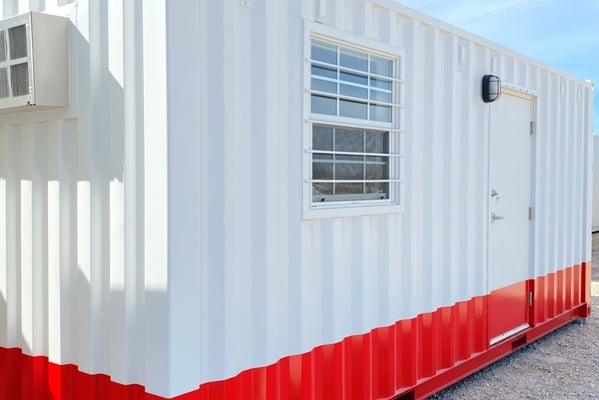
Whether it’s for a construction site or an oil drilling site, mobile office solutions help teams complete administrative work amidst the hustle and bustle of the job site. For this reason, many companies rely on temporary office solutions to remain productive.
As you search for a mobile solution, you will likely come across two options: office trailers and ground level offices (also known as GLOs). Choosing between these two solutions should be made by first understanding: “What are the differences between these mobile office options and how will they impact my business operations?”
Are Office Trailers Considered Ground Level?
Even though office trailers aren’t far from the ground, they are not considered ground level. Instead, they sit on a chassis, which is a frame with wheels and a towing hitch, allowing the office to stand a few feet off the ground. Ground level offices, on the other hand, sit directly on the ground as stated.
Here’s a simple graphic:
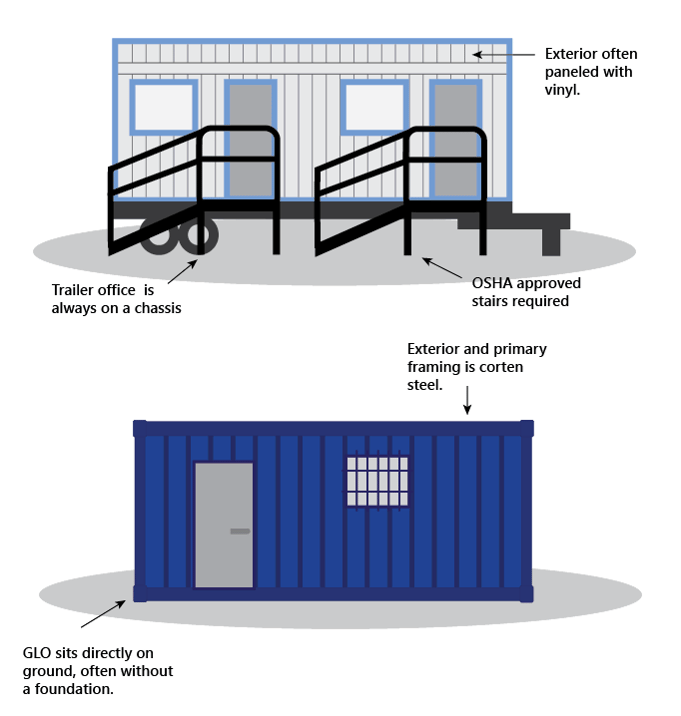
How Are Office Trailers and Ground Level Offices Constructed?
Both office trailers and ground level offices are constructed offsite in a manufacturing facility. Office trailers tend to use steel and aluminum for framing, along with a combination of fiberglass, vinyl, aluminum, plywood, and other materials for the walls. Although, you should keep in mind that there’s a fair amount of variability depending on the manufacturer and model.
Similarly, ground level offices also come in a variety of designs. Not every ground level office is made from a shipping container, but many are (this is our specialty here at Falcon Structures). Containers are widely used often because of the structures’ inherent mobility and durability.
Manufacturers of repurposed shipping containers modify the boxes into modular offices with all the amenities including doors, windows, electricity, plumbing, and more. For ground level offices, the structures come with the steel framing and corrugated steel walls of the original conex container. To transform the container into an office, manufacturers will finish out the interior with plywood, insulation, and other features.
How Do I Transport My Office Trailer or Ground Level Office?
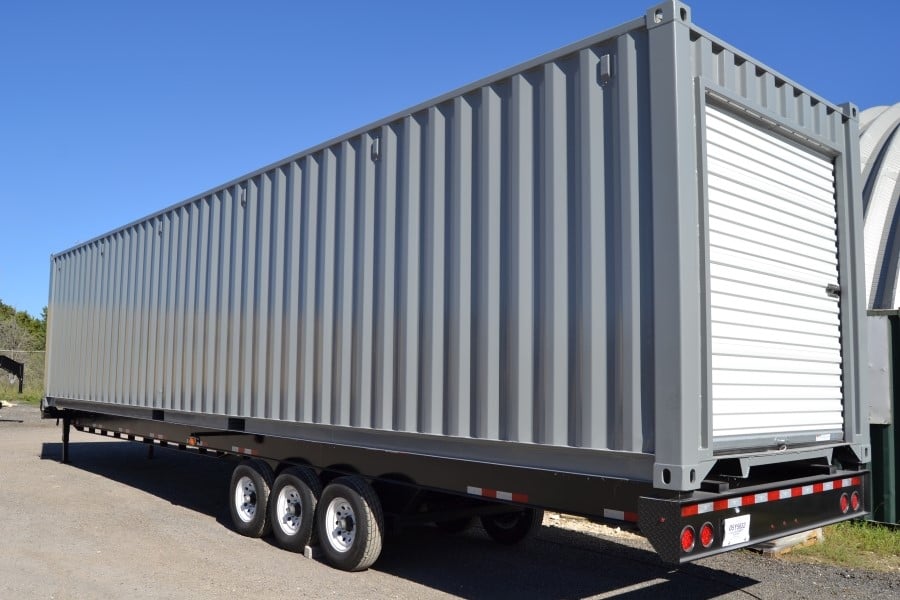
Office trailers are permanently mounted on a chassis—a frame with wheels—and are therefore towable by truck. Ground level offices, on the other hand, need to be placed on-site by a crane, specialty forklift, or tilt bed truck.
It’s possible to place a ground level office on a chassis. However, once the office is up on wheels, it’s no longer a ground level office, but rather a container-based office trailer. Most businesses choose to keep their container-based offices at ground level because the maintenance associated with the tires and chassis frame adds cost and inconvenience.
What Site Prep Will My Office Trailer and Ground Level Office Need?
Office trailers and ground level offices both require flat, dry, and level surfaces. Because an office trailer is on a chassis, you will need to spend some time blocking and leveling the frame. You may choose to cover the blocking and wheels with skirting to make the office look less like a trailer. Office trailers must also have OSHA-compliant stairs from the ground to the doorway.
Ground level offices, true to their name, sit directly on the ground, no stairs are needed. Depending on the site conditions, businesses often place their container-based offices without preparing a foundation. Figure out if your ground level office will need a foundation or how often you should relevel the unit with this helpful guide.
Business Benefits to Ground Level Offices
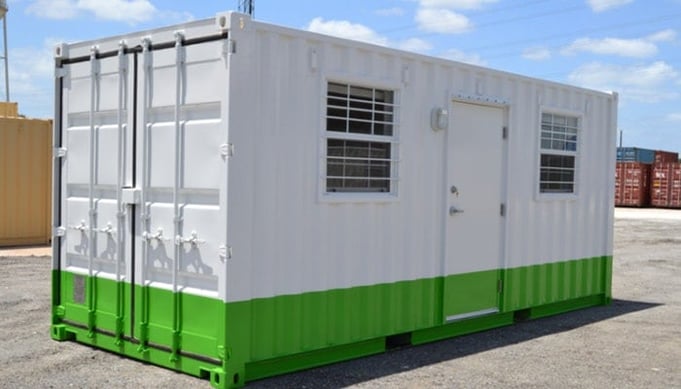
Since ground level offices and office trailers are comparable in price and offer similar plug-and-play convenience, we recommend you consider which option makes the most sense for your company.
Here are two examples that might benefit from different portable offices:
1. If You Plan to Transport the Office Often
If you need to transport your office every month, you’ll probably want to keep the unit on wheels. In this instance, you won’t have to worry about reloading and unloading the office and can instead easily attach an office trailer to a truck.
2. If You Need Extra Security
It’s possible to burglarize nearly anything, but a shipping container-based office with its steel walls and barred windows can make breaking in extremely difficult. In fact, construction companies were among the first to use shipping container-based storage and offices because of the added security.
Your Options for Ground Level Offices
We know; they all look similar on the outside—rectangular, corrugated steel, a personnel door or two—but at Falcon, we’ve created unique models of shipping container-based ground level offices. If you’d like to inquire about a shipping container office, give us a call at 877-704-0177 or email us at Sales@FalconStructures.com. We will be happy to talk more about your company’s needs.
SUBSCRIBE
- Shipping Container Modifications
- How-Tos
- Workspace
- Commercial Construction
- Multi-Container Buildings
- Storage Solutions
- Industrial Enclosures
- Bathrooms & Locker Rooms
- Oil & Gas
- Climate Control
- Green Building
- Industry Insight
- Living Space
- Military & Training Facilities
- Water Treatment Solutions
- Energy
THINK INSIDE THE BOX®
WITH OUR BLOG
Get everything from shipping container basics, to detailed how-tos and industry news in our weekly blog. Stay inspired and subscribe!
RELATED BLOGS
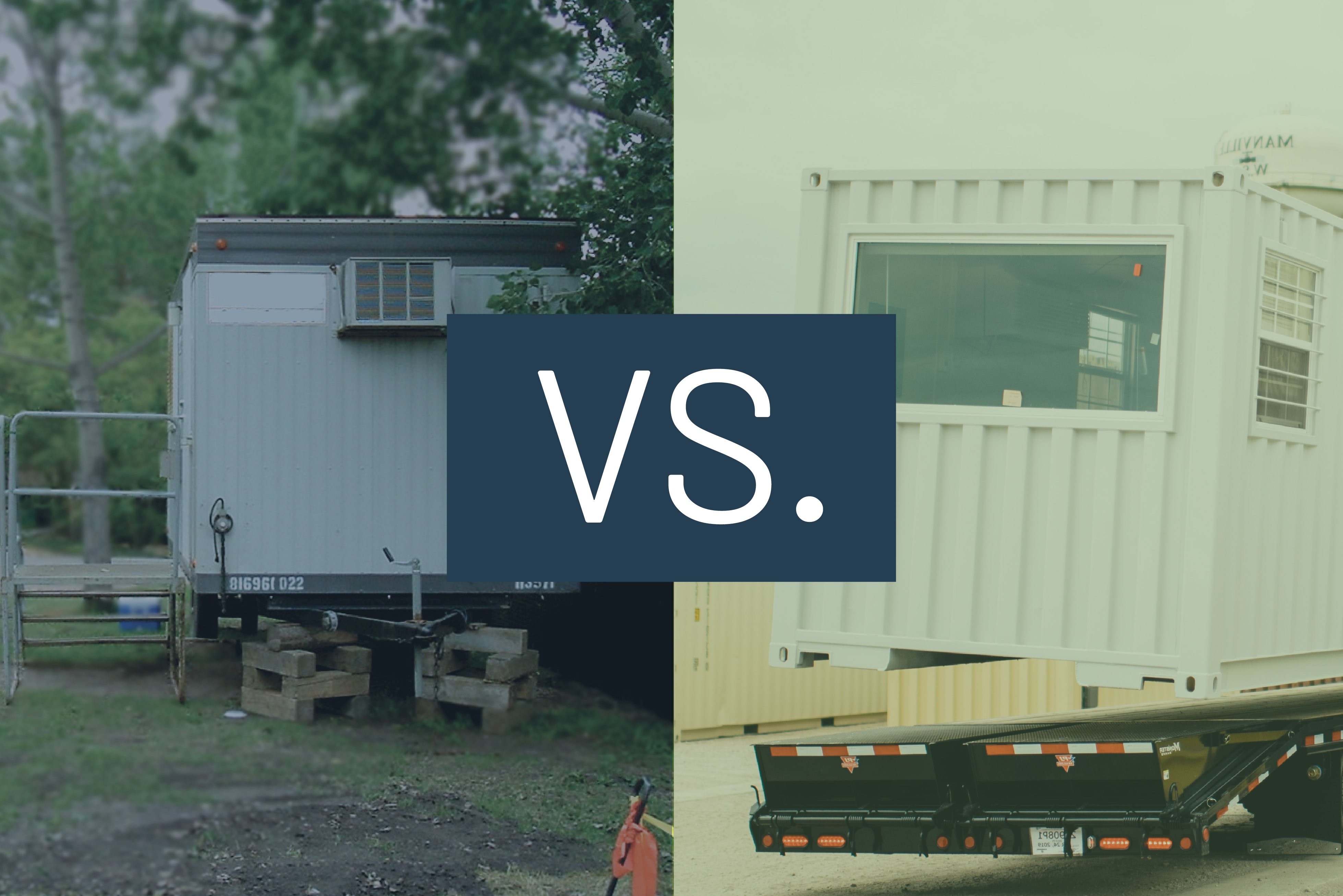
How Much Is a Mobile Office? Compare Your Options
Becca Hubert | Oct 18, 2023 | 4 min read
READ MORE
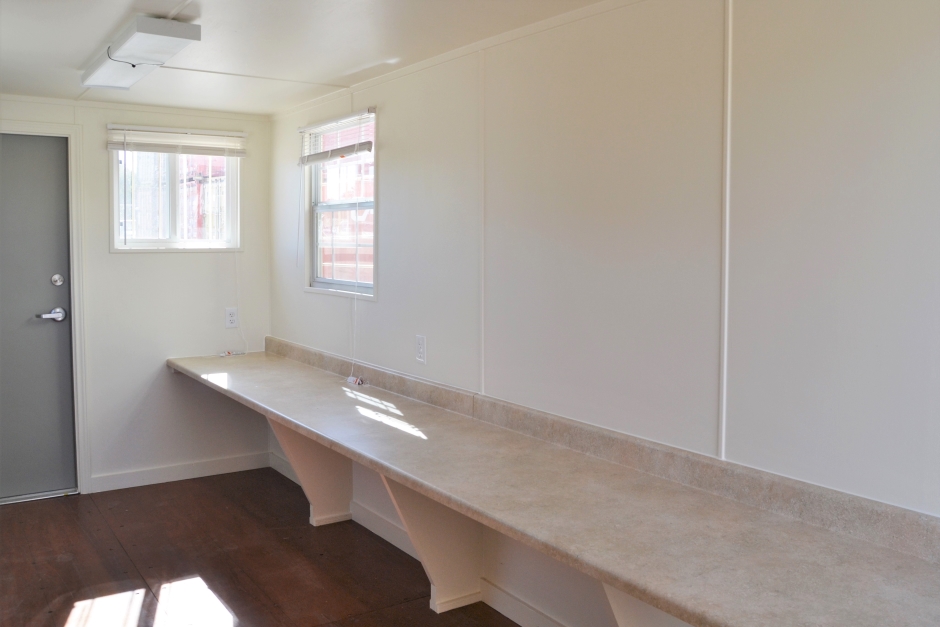
A New Way to Think About Jobsite Office Trailers
Marissa Morin | Oct 7, 2020 | 4 min read
READ MORE
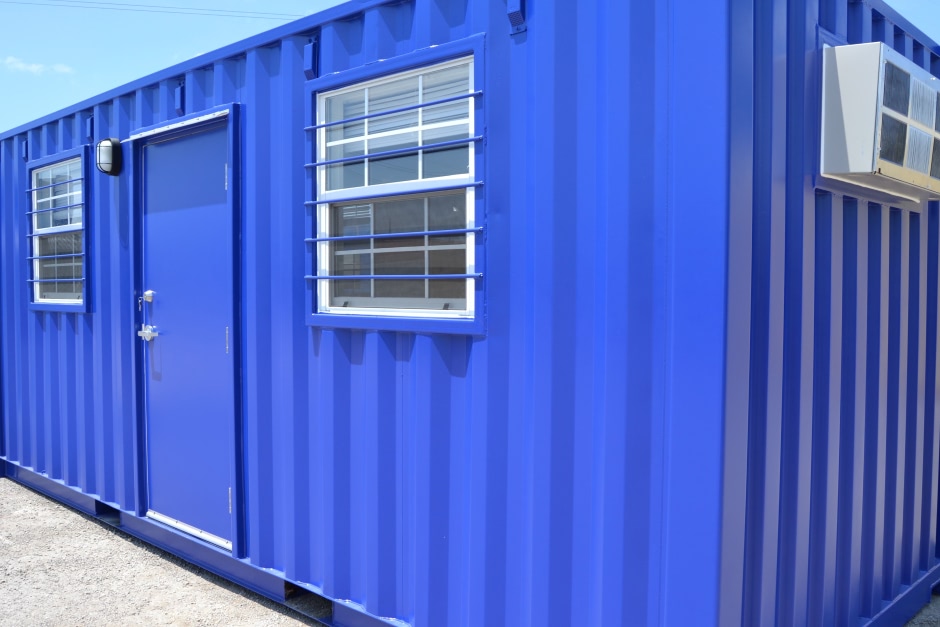
Is a Portable Office Trailer Right for Your Business?
Marissa Morin | Nov 27, 2019 | 4 min read
READ MORE

